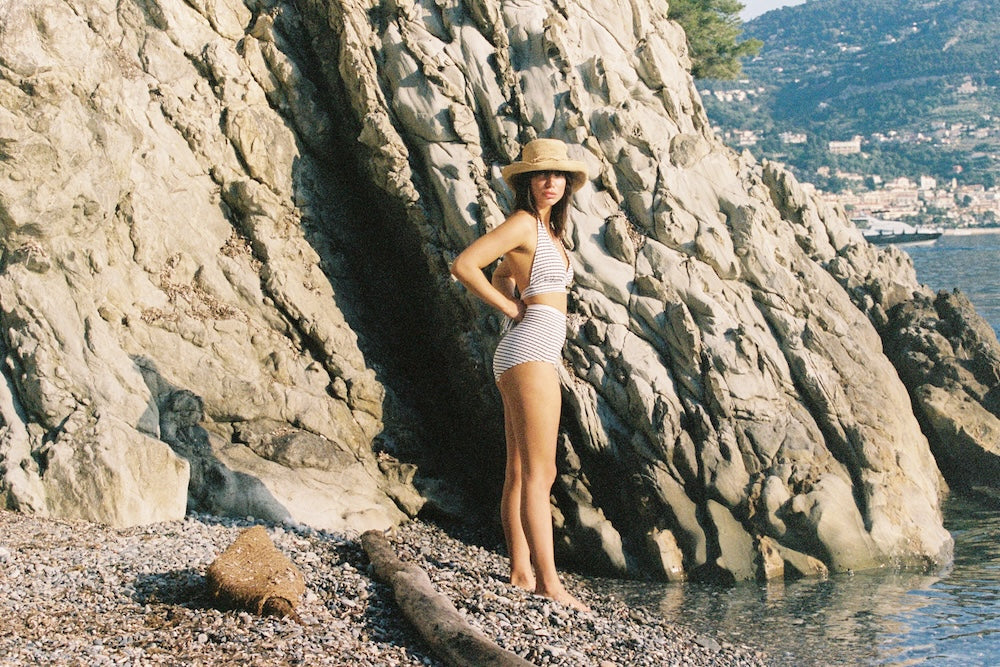Businesses face an uncertain landscape in today's climate. Economic turbulence caused by the coronavirus pandemic, changing consumer purchasing patterns, and revised industries have thrown into question traditional methods of doing business. The luxury industry has been particularly hard-hit by the drastic shift in customer behavior and the decrease in tourism spending during the pandemic. Brands everywhere, including luxury brands, need to find new ways to connect with an increasingly value-conscious customer base.
According to Boston Consulting Group, companies will need to explore customer loyalty initiatives, and luxury brands will need to find a new way to connect with consumers on a deeper level. Without meaning associated with their products, even once established brands such as Louis Vuitton may find themselves overwhelmed by newer start-ups offering something greater in terms of values and experiences. In order to combat this decline in interest from modern shoppers, established luxury labels must focus on creating tangible items that contain socio-cultural values and emotions embedded within them - thus restoring meaning where previously it has been lost.
A CHANGE IN LUXURY
In the 1980s, luxury was synonymous with loud. Without big branding that made it clear that your pants were Dolce and Gabbana, your purse was Louis Vuitton, your shirt was Gucci, and your shoes were Prada, was it even luxury? These were popularized by the media at the time, and were still popular... until recently.
As society continues to progress, so does the definition of luxury items. Today, consumers are looking for more than just an expensive item; they’re calling for brands to provide meaningful experiences and higher quality materials that create a level of prestige beyond what was available in the past. It is clear that consumers want more from luxury brands than ever before, requiring them to be emotionally resonant as well as well crafted and attractive.
The end of luxury's golden era is certainly an alarming development for companies and consumers across the industry. For the past decade, growth due to a booming economy and strong consumer spending from Chinese customers has been a major boost to the market. The democratization of luxury goods, such as lower opening price points, trendy new items like high-end sneakers and casualwear, and collaboration between labels further expanded the market.
Today, the concept of luxury consumption is undergoing a transformation in many ways. With a focus on sustainable luxury, unique luxury, experiential luxury, and minimalist luxury, today's luxury is drastically different from the luxury of 50 years ago.
SUSTAINABLE LUXURY
Luxury brands and retailers face numerous challenges and opportunities in the ever-changing landscape of modern consumer interests. These organizations have the opportunity to make a positive change in our world by providing sustainable and ethical services that provide more than just luxury items. Consumers are demanding that these businesses focus on sustainability initiatives and address their environmental impact. This can be achieved by reevaluating their entire business model. This includes deciding on materials that are sourced locally, reducing their carbon footprint, providing support for local communities, and promoting animal rights.
In addition to sustainability considerations, diversity and inclusion are critical to successful brands and retailers today. Consumers want companies that share values with them - ones that promote equality for all people regardless of race, gender, sexuality, etc. This requires organizations to design intentional strategies for long-term success; a lack of diversity in any aspect can cause customers to lose trust in the brand or organization, so building off of existing diversity is important. By investing resources into creating diverse teams at every level across the company's infrastructure and employing new ways of participating in charitable endeavors concerning social issues – brands will set themselves apart from others in the industry.
The consumer-driven trend of new minimalism is rapidly becoming one of the guiding principles for luxury brands, whereby fewer and better things of lasting quality are prioritized and produced. Consumers are rejecting the culture of waste that has overtaken the traditional consumerist lifestyle, seeking instead a more sustainable way to live that reduces environmental impact. The demand for simplicity, authenticity and high-quality materials sets an imperative for luxury brands to create products that will last much longer; ones made with attention to detail and constructed without compromising on standards.
Successful luxury brands increasingly realize that their appeal can be strengthened by advocating social and cultural values in a manner that resonates authentically with their customers. By producing fewer but better items with quality industrial processes, they can be sure to maximize customer satisfaction while also protecting brand reputation over time. This gives consumers a sense of meaningfulness through their choice of fashion – as well as a tangible reminder of their possessions having been ethically made – making it all the more worth investing in few items that produce high levels of value rather than consuming at great cost items that have no long-term benefits.

EXPERIENTIAL LUXURY
The wealth class is growing, and people have more money than ever to buy luxury—yet research shows that an increase in material goods doesn’t lead to lasting satisfaction. Fortunately, this has created new opportunities for those pursuing meaningful experiences. This pursuit of meaning offers an entire range of options in experiential luxury, from dining and travel to self-care and self-discovery.
The status symbol of the same big luxury brands is not as effective and impactful as it once was. In order to be truly unique, luxury consumers seek out local, handmade, and small batch goods. Experiential luxury stands out for its specificity and delivery of a truly memorable experience. Highly sought after experiences such as dining out or booking a vacation can take on various forms due to their intangible nature. There’s no limit as to what you can learn, explore, and discover by focusing on experiences instead of material items; you could deepen your relationship with yourself or others through meditation, retreats, or workshops while also enjoying the scenery around you in exotic locations with beautiful sights, sounds and tastes. These activities have real benefits which increase our overall quality of life rather than just adding noise.
MINIMALIST LUXURY
Minimalist luxury’ refers to subtler luxury that conveys nicer things in life. This trend, rising in part due to the influence of social media, speaks to a consumer population who seeks more impact from their buying decisions than just pure vanity or status symbols.
Companies must acknowledge this shift in attitude and accept it as an opportunity to refocus how they produce and market their high-end goods. Luxury products should no longer be sold solely on their ostentatiousness but rather for the quality of fabrication and design symmetry that affords it greater meaning with society's values of being more mindful about over-consumption. As such, businesses would benefit greatly by pursuing innovative ways to provide consumers with tangible experiences through meaningful engagements and values-aligning communications that satisfy an elevated lifestyle expectations mirrored by this new
In the paper Less is More: The Case of Minimalist Luxury, professors Z. Jessie Liu, Pinar Yildirim, and Z. John Zhang explore how this breakdown in luxury's meaning is largely due to a shift in how people perceive value for their money. Instead of driving consumers to purchase high-end items, expensive things are no longer seen as status symbols. The desire to own material possessions has been replaced by wanting to experience what it feels like to be truly luxurious. This idea is best expressed by the observation that ‘’things actually end up owning us’’ and that people now prefer freedom rather than ownership, leading to the rise of the sharing economy.
That brings us back to the question: Should an item be considered luxury anymore if it's costing the Earth? And the answer to that is shifting closer to “no” with changes in consumers, brands, and businesses every day.

Written by Neesha Basnyat - Sustainability Writer for Koraru
Neesha Basnyat is a an experienced sustainability writer and researcher specialising in biology, sustainability, CSR, and ESG analysis and reporting. With an educational background in Biology and Environmental Science and over 6 years of experience in the sustainability field, Neesha loves everything green, from shoveling compost to calculating emissions or researching the best new standards in the sustainability space.
Header image by Creative Lab / Shutterstock.com




